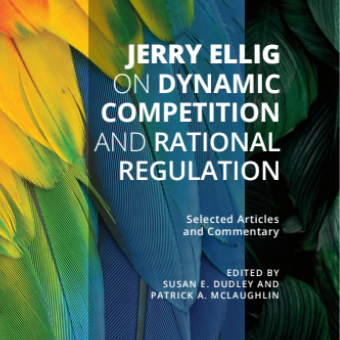Regulation, though often overlooked, is one of the most important ways in which policy is made. It is a key tool used to pursue societal goals from economic well-being to improving health, safety, and the environment. To fully understand regulation and its effects on all of us, the insights of multiple disciplines; including economics, law, political science, public policy and public administration, are needed. We also need interaction between researchers and practitioners.
Enter Jerry Ellig.
Not only did Jerry publish various books, reports, and academic papers across multiple disciplines, but he also worked in various government positions, testified before Congress and federal agencies, wrote popular op-eds, and did so much more to bridge the gap between his ideas and real-world policymaking to solve problems for both today and tomorrow.
Jerry was a wonderful colleague, brilliant scholar, generous mentor, and dear friend. His friendly and upbeat personality endeared him to all who were fortunate to meet him. We hope you will join us as we reflect on the positive difference he made in the lives of so many people.
A Collection of Jerry's Contributions
In the United States, the express purpose of regulation is, according to a 1993 executive order, to "protect or improve the health and safety of the public, the environment, or the well-being of the American people." However well-intentioned, all human action carries with it the potential for secondary, sometimes negative, consequences. In the case of regulation, these consequences may cause harm- by exacerbating poverty, increasing opportunity inequality, raising prices, or reducing economic growth.
The late Jerry Ellig-economist, teacher and writer- argued that before imposing regulations on individuals and their activities, policymakers must conduct the kind of economic analysis that can deliver rational regulation. This process requires asking: How significant is the problem the regulation seeks to address? What is the root cause of the problem? Are there alternative ways to address the cause, and how effective might they be? What are the benefits and costs to society of each alternative?
These are the questions Ellig sought to answer-whether conducting research at the George Washington University Regulatory Studies Center, serving as chief economist at the Federal Communications Commission, delivering testimony at a congressional hearing, or teaching students at the Mercatus Center at George Mason University. As this memorial collection shows, improvements in the regulatory process can foster the life- enhancing innovation and dynamic competition on which future prosperity depends.
New Book: Jerry Ellig on Dynamic Competition and Rational Regulation




